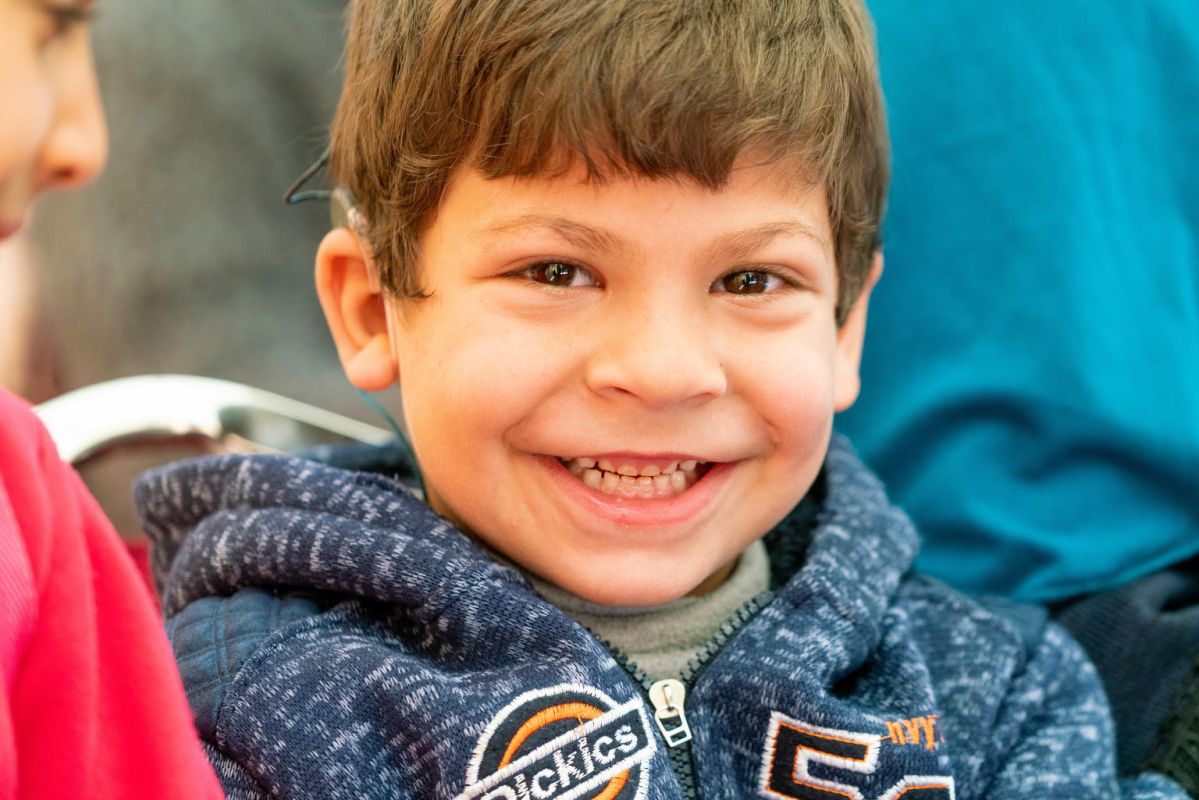UNICEF’s work to promote inclusive education
To close the education gap for children with disabilities, UNICEF supports government efforts to foster and monitor inclusive education systems. Our work focuses on four key areas:
Advocacy: UNICEF promotes inclusive education in discussions, high-level events and other forms of outreach geared towards policymakers and the general public.
Awareness-raising: UNICEF shines a spotlight on the needs of children with disabilities by conducting research and hosting roundtables, workshops and other events for government partners.
Capacity-building: UNICEF builds the capacity of education systems in partner countries by training teachers, administrators and communities, and providing technical assistance to Governments.
Implementation support: UNICEF assists with monitoring and evaluation in partner countries to close the implementation gap between policy and practice.
